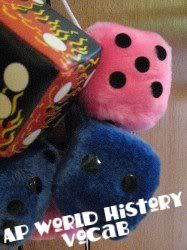21 words
Bangladesh (837)
Founded as an independent nation in 1972; formerly East Pakistan.
Indira Gandhi (845)
Daughter of Jawaharlal Nehru (no relation to Mahatma Gandhi); installed as a figurehead prime minister by the Congress party bosses in 1966; a strong-willed and astute politician, she soon became the central figure in India politics, a position she maintained through the 1970s and passed on to her sons.
Corazon Aquino (845)
First president of the Philippines in the post-Marcos era of the 1980s; Aquino, whose husband was assassinated by thugs in the pay of the Marcos regime, was one of the key leaders in the popular movement that toppled the dictator.
Jawaharlal Nehru (845)
One of Gandhi’s disciples; governed India after independence (1947); committed to program of social reform and economic development; preserved civil rights and democracy.
Benazir Bhutto (845)
Twice prime minister of Pakistan in the 1980s and 1990s; first ran for office to avenge her father’s execution by the military clique then in power.
religious revivalism (846)
An approach to religious belief and practice that stresses the literal interpretation of texts sacred to the religion in question and the application of their precepts to all aspects of social life; increasingly associated with revivalist movements in a number of world religions, including Christianity, Islam, Judaism, and Hinduism.
primary products (846)
Food or industrial crops for which there is a high demand in industrialized economies; prices of such products tend to fluctuate widely; typically the primary exports of Third World economies.
neocolonial economy (846)
Industrialized nations’ continued dominance of the world economy; ability of the industrialized nations to maintain economic colonialism without political colonialism.
Gamal Abdul Nasser (850)
Took power in Egypt following a military coup in 1952; enacted land reforms and used state resources to reduce unemployment; ousted Britain from the Suez Canal zone in 1956.
Free Officers movement (850)
Military nationalist movement in Egypt founded in the 1930s; often allied with the Muslim Brotherhood; led coup to seize Egyptian government from khedive in July 1952.
Muslim Brotherhood (850)
Egyptian nationalist movement founded by Hasan al-Banna in 1928; committed to fundamentalist movement in Islam; fostered strikes and urban riots against the khedival government.
Anwar Sadat (853)
Successor to Gamal Abdul Nasser as ruler of Egypt; acted to dismantle costly state programs; accepted peace treaty with Israel in 1973; opened Egypt to investment by Western nations.
Hosni Mubarak (854)
President of Egypt since 1982; succeeding Anwar Sadat and continuing his policies of cooperation with the West.
Green Revolution (854)
Introduction of improved seed strains, fertilizers, and irrigation as a means of producing higher yields in crops such as rice, wheat, and corn; particularly important in the densely populated countries of Asia.
Ayatollah Ruhollah Khomeini (855)
Religious ruler of Iran following revolution of 1979 to expel the Pahlavi shah of Iran; emphasized religious purification; tried to eliminate Western influences and establish purely Islamic government.
homelands (857)
Under apartheid, areas in South Africa designated for ethnolinguistic groups within the black African population; such areas tend to be overpopulated and poverty-stricken.
African National Congress (858)
Black political organization within South Africa; pressed for end to policies of apartheid; sought open democracy leading to black majority rule; until the 1990s declared illegal in South Africa.
Walter Sisulu (858)
Black African leader who, along with Nelson Mandela, opposed apartheid system in South Africa.
Nelson Mandela (858)
Long-imprisoned leader of the African National Congress party; worked with ANC leadership and F. W. de Klerk’s supporters to dismantle the apartheid system from the mid-1980s onward; in 1994, became the first black prime minister of South Africa after the ANC won the first genuinely democratic elections in the country’s history.
Steve Biko (858)
An organizer of Black Consciousness movement in South Africa, in opposition to apartheid; murdered while in police custody.
F. W. de Klerk (858)
White South Africa prime minister in the late 1980s and early 1990s. Working with Nelson Mandela and the African National Congress, de Klerk successfully dismantled the apartheid system and opened the way for a democratically elected government that represented all South Africans for the first time.
I have hand cramp like whoa from the two essays we did in a row. :\ No fair, Mr. Allen. I purposely leave my outline until Thursday evening, and I do well on your tests! *flail* Grrrnaghh!
Etc. notes:
My word-of-the-post for this one was illimitable. Just how did I end up using that one in the proper context, anyway? ...Oh, yeah. In reference to the cuteness level at CuteOverload.com. Have you gone yet? Have you? You better. Get comfy with those bunnies and mousies and chickies.


2 comments:
My entire class is using this. Thank you so much you beautiful creature of the WHAP sufferers.
My entire class is using this. Thank you so much you beautiful creature of the WHAP sufferers.
Post a Comment